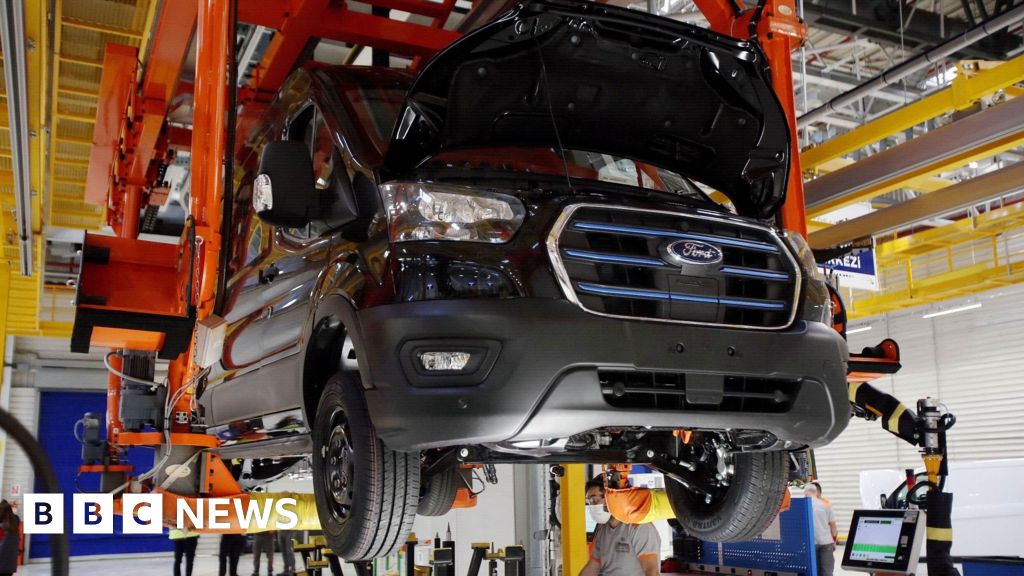Meanwhile in Britain, the government is coming under intense pressure from the car industry over rules designed to force them to build more electric vehicles. The issue is due to be discussed at a meeting between industry and ministers on Wednesday afternoon.
Under the so-called Zero Emission Vehicle (ZEV) Mandate, which came into force this year, at least 22% of cars sold must be classed as zero emission. If manufacturers fail to hit their quotas, they could face fines of up to £15,000 per car.
A number of carmakers are already struggling to meet their targets, although there are flexible mechanisms built into the rules which should allow them to avoid fines for the moment.
But the quota is due to rise to 28% next year, and to 33% in 2026 – being ramped up each year after that to hit 80% by 2030.
Manufacturers insist this is happening too fast. Although sales of new EVs are rising – with one in five cars sold in October being battery powered, they say this is misleading.
They claim demand for electric cars simply isn’t high enough yet, forcing them to offer unsustainable discounts in an effort to meet their targets.
Some are calling for the government to water down the quotas, in order to give them more time.
Others say it needs to offer greater taxpayer-funded incentives for electric cars, and to do more to reassure car buyers that enough charging infrastructure will be built.
But according to Vicky Read, chief executive of charging firm Charge UK a weakening of the mandate would be the wrong move.
“The government must hold its nerve and use the meeting to signal support for a policy that is evidently working,” she said.
A government spokesperson said it is “determined to work in close partnership with industry as we implement the 2030 transition deadline”.

